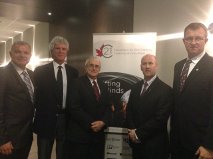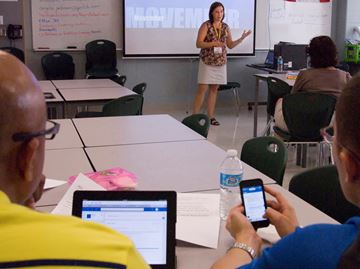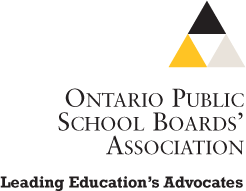
By John Kershaw, President of C21 Canada, and the former Deputy Minister of Education for New Brunswick
The release of the OECD’s PISA results December 3rd, 2013 http://www.oecd.org/pisa/keyfindings/pisa-2012-results.htm noted that while Canada remains as one of the world’s top performing countries, our overall achievement levels continue to trend downwards. These results are a predictor of our nation’s future prosperity. In the knowledge and digital era, where highly skilled people are the new economic and social drivers, there is legitimate cause for concern.
The implications of the PISA scores were not lost on John Manly, past federal Cabinet member and current president of the Canadian Council of Chief Executives, who was quoted in the Globe and Mail as calling the findings “a national emergency”. While others greeted the results more positively, many Canadian leaders are calling for action.
A Roundtable of Canadian business and finance leaders, convened on the same day as the release of the PISA results, underlined the call for transformative changes to Canada’s education systems. The Roundtable was a joint venture of the Council of Ministers of Education Canada (CMEC) http://www.cmec.ca/and C21 Canada www.c21canada.org . The Honourable Jeff Johnson, the Minister of Education from Alberta and current Chair of CMEC chaired the meeting. The Honourable Alan McIssac, Minister of Education and early Childhood Development joined Minister Johnson at the Roundtable, with Minister Liz Sandals, Minister of Education for Ontario, joining the gathering and sharing the podium with Minister Johnson during the event’s luncheon.
The Roundtable participants shared a number of perspectives. Concern was expressed with the growing disengagement of high school students in their own learning. Others cited the need for an enhanced focus on the quality of teaching. The nature of the skills gap in Canada was similarly addressed. But one message was clear. All the participants are seeking national leadership and a national strategy for education to position Canada for future success.
In Canada, education is a provincial jurisdiction, and as such there is no federal department of education. Thus, it falls to CMEC to provide a national vision and framework for learning in Canada, while recognizing the jurisdictional autonomy of the individual provinces. While this constitutional reality is cited by some as a deterrent to national action, others view the de-centralization of authority as one of Canada’s greatest strengths, both in terms of allowing innovative forms of learning and teaching to emerge, and in aligning learning and skills development with regional priorities.
Notwithstanding the realities of the jurisdictional context for education in Canada, given today’s transformative economic and social realities, more than ever before there is a need for a national vision for education and skills development. And national does not necessarily mean federal. Thus it falls to CMEC to engage Canadians in the design of a 21st century inspired vision and framework for learning and skills development in Canada. Fortunately, the Chair of CMEC and his ministerial colleagues are signalling that they are up to the task. While underlining the fact that the provinces were already aware of and addressing the declining achievement levels reflected in the latest PISA results, Minister Johnson certainly did not dismiss the need for more substantive changes. In fact, it is clear that his leadership in Alberta in designing and implementing that province’s 21st century learning agenda Inspiring Education https://education.alberta.ca/department/ipr/inspiringeducation.aspx makes him well suited to leading CMEC at a defining moment in Canada.
The process of designing this national vision and framework for learning and skills development must be inclusive and collaborative by design. The Roundtable participants were clear; business, finance and other societal leaders want and need to be at the table to help design and implement the national vision and framework. And while national does not mean federal in the context of who leads the process, the process of engagement must include appropriate federal involvement and representation. The federal government does have significant responsibilities and investments that need to be aligned with those of the provinces. Lastly, given that a key success factor will be sustained effort, non political Canadian leaders will have a significant responsibility in holding successive political leaders and their governments accountable for maintaining the agreed upon course.
In today’s innovation driven economy, creative and innovative people with critical thinking skills, the ability to collaborate and adapt to changing circumstances, and thrive in a digital landscape are prerequisites to success. Many participants at the Roundtable highlighted the need for these and other 21st century competencies to be infused into the learning outcomes without losing sight of the foundational importance of and need to improve literacy, numeracy and science achievement levels. Indeed, a representative at the Roundtable from the Canadian Council of Chief Executives noted that a survey of its members showed that these “soft skills” trumped content knowledge as recruitment priorities.
C21 Canada’s Shifting Minds, A Vision and Framework for Learning in the 21st Century, calls for exactly this model of learning for Canada, and is a good place to start the discussion (www.c21caanda.org).
Long recognized as a social priority, education is increasingly being recognized as an economic imperative. Indeed, in the knowledge era, investments in education are investments in the economy. This does not necessarily mean pouring more funding into education; it does mean knowing where and how to invest, aligning education to the needs of society, and shifting your priorities and resources accordingly.
If Canada is to have sustained success in today’s innovation driven world, what we teach, and how we teach must shift to 21st century models of learning, and the nation’s investments in education aligned accordingly. The good news is that we have pockets of innovative learning and teaching excellence through-out Canada. It is time to make these practices the norm, not the exception.
If Canada is to be a global economic and social leader, we need CMEC to show national leadership in designing a vision and framework for learning and skills development in Canada. All Canadians have a stake in this exercise and a responsibility to engage. C21 Canada will continue to support CMEC as it embarks on this important and urgent task.

![IMG_5435[1]](http://www.c21canada.org/wp-content/uploads/2013/11/IMG_54351-e1383839038871.jpg)


